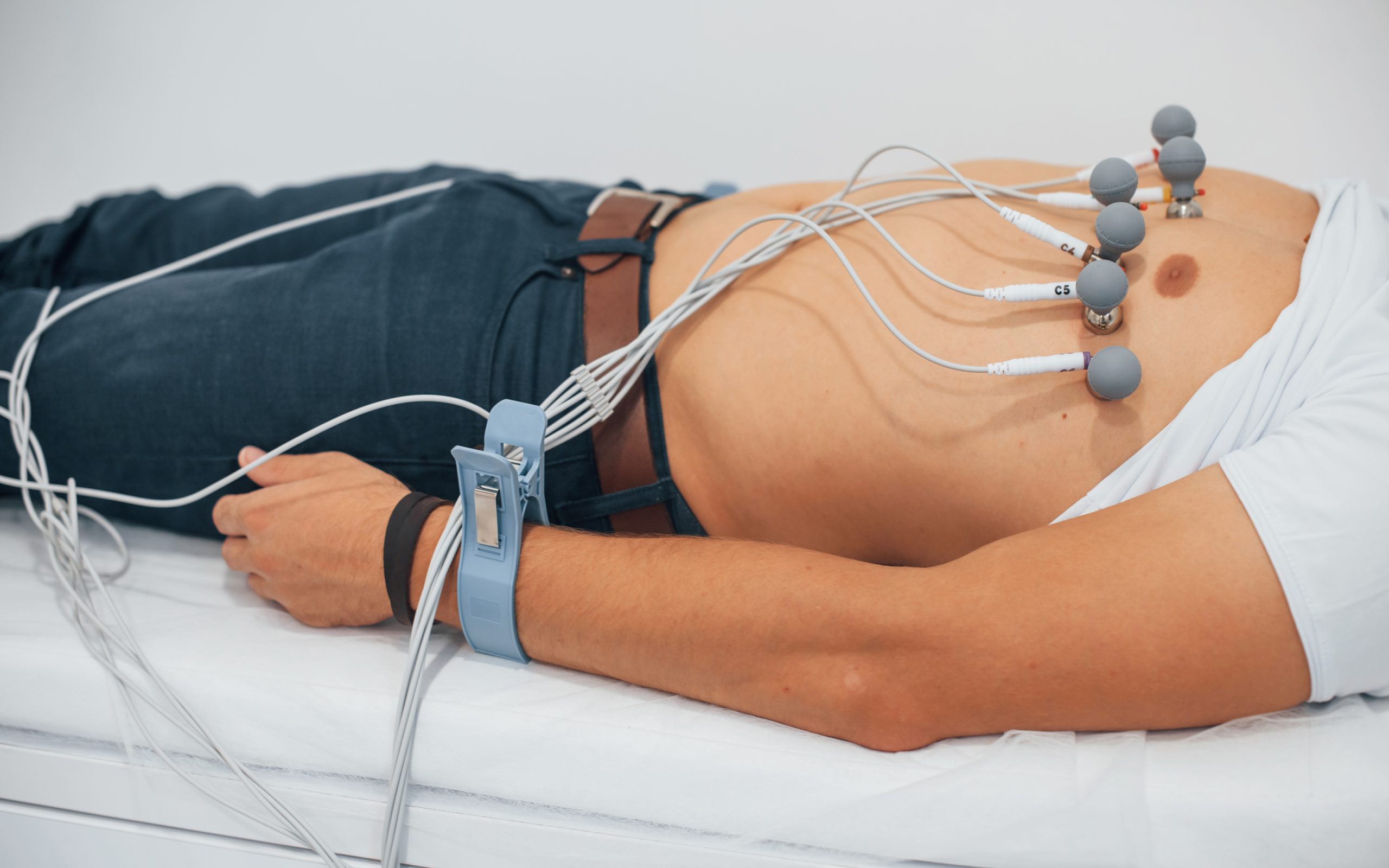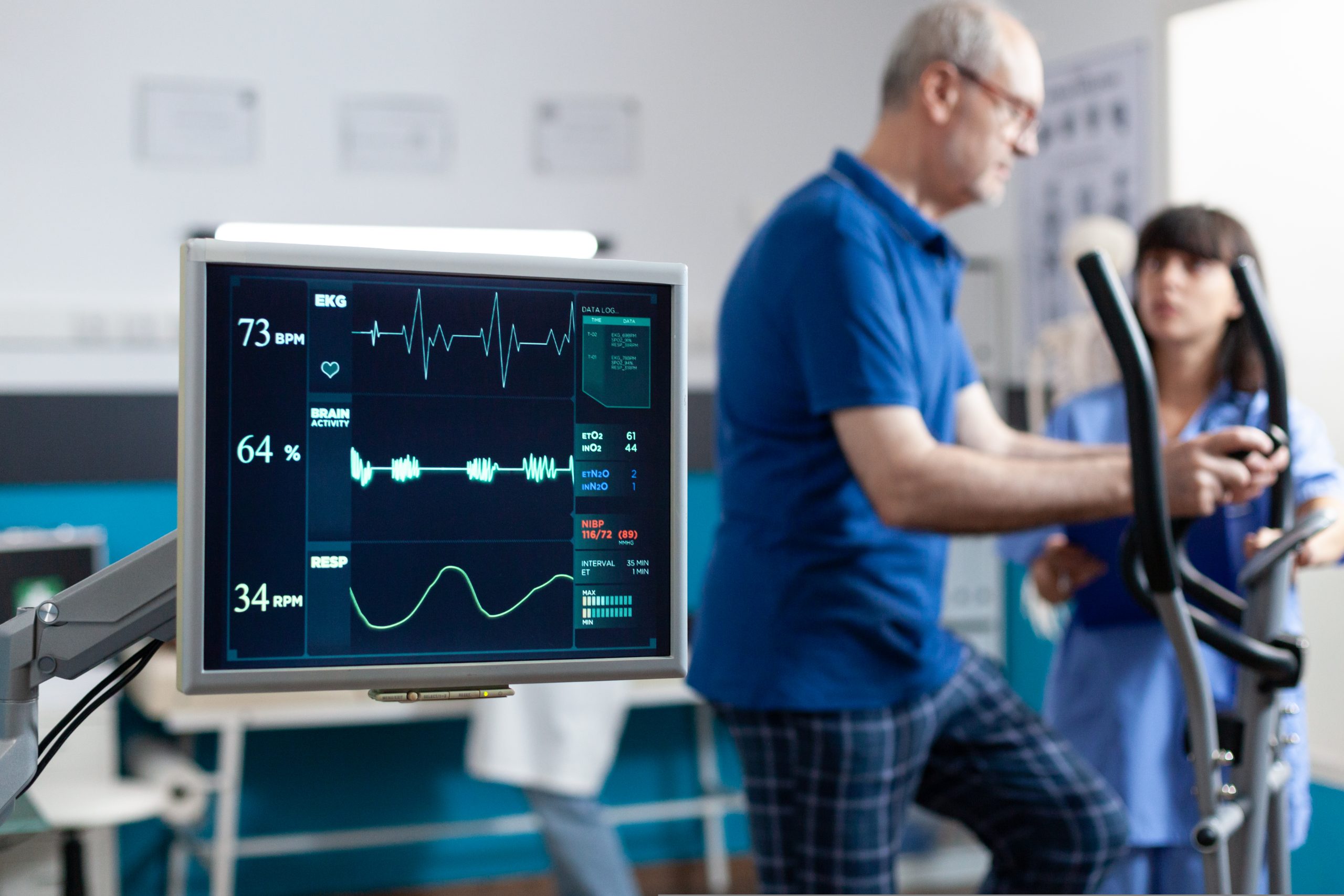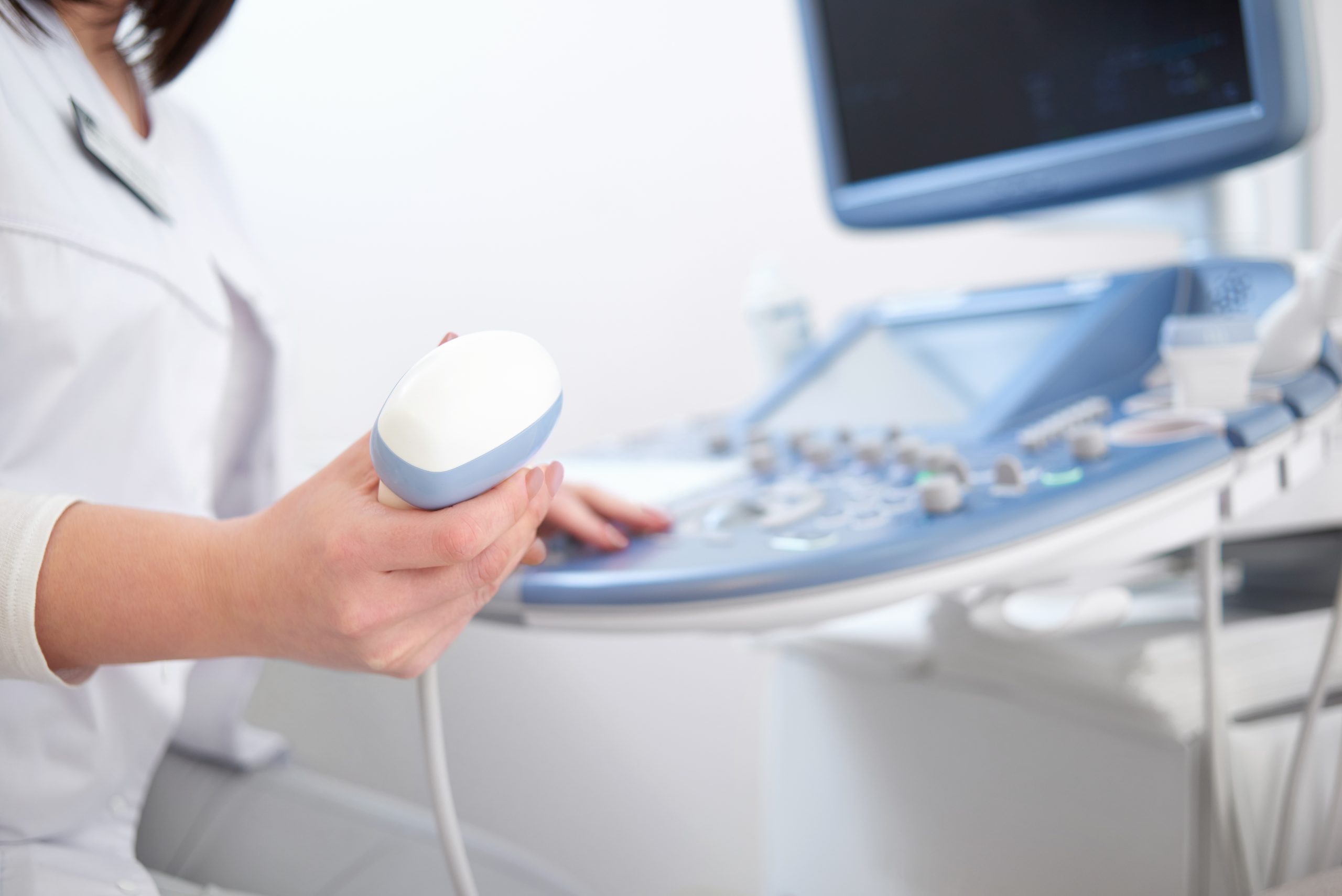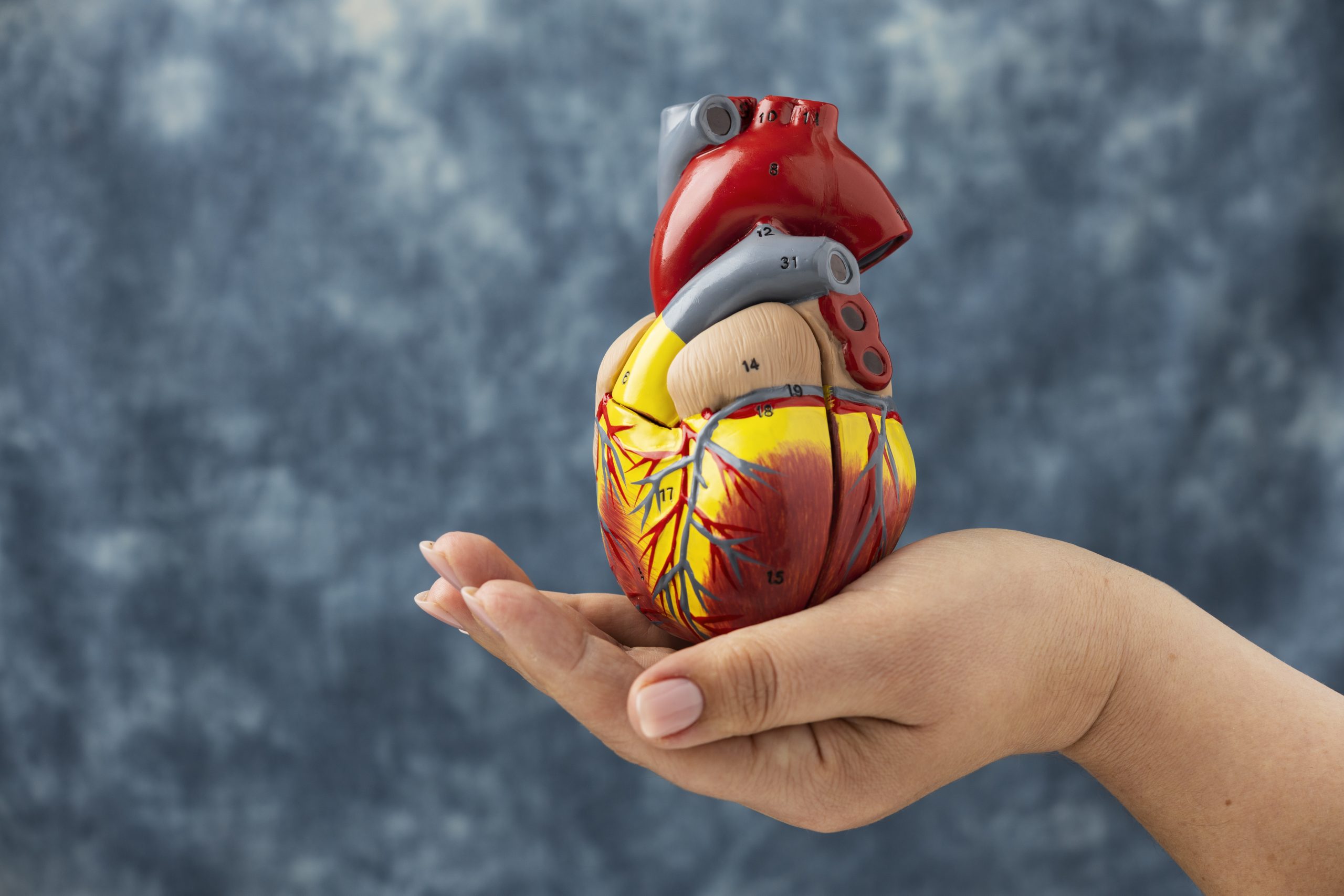Type of Heart Tests
Heart health is an important aspect of overall health and well-being, and various tests are available to assess heart function. Three of the most common tests to diagnose heart function are the ECG, exercise stress test and the echocardiogram. While all three tests provide valuable information about the heart, they evaluate different aspects of heart function. Combining tests can provide a more complete picture of a person’s heart health.
Electrocardiogram

An ECG test is a simple, painless and non-invasive procedure that provides important information about the health of the heart. It is performed using electrodes that are placed on the chest, arms, and legs. It is commonly used to diagnose a heart attack, monitor the effectiveness of treatment for heart conditions, and detect abnormalities in heart rhythm.
ECGs are used to diagnose a variety of heart conditions, including:
- Abnormal heart rhythms (arrhythmias)
- Heart attack (myocardial infarction)
- Enlarged heart (cardiomegaly)
- Heart valve problems
- Congenital heart defects
Exercise Stress Test

Exercise stress test, also known as treadmill stress test is designed to assess the heart’s ability to pump blood during physical activity. The test involves walking on a treadmill at increasing levels of intensity, while the patient’s heart rate and blood pressure are monitored. The purpose of the test is to identify areas of the heart that are not receiving enough blood flow, which could indicate blockages or other issues that need to be addressed.
Echocardiogram

An echocardiogram abbreviated as Echo, on the other hand, is an ultrasound of the heart that provides detailed images of the heart’s structure and function. The test can reveal information about the size and thickness of the heart walls, blood flow through the heart and blood vessels, and the pumping ability of the heart. This information can be used to diagnose various heart conditions, including heart valve problems, heart muscle problems, and heart defects that were present at birth.
Optimal Diagnosis: Exercise Stress Test + Echocardiogram
While both the exercise stress test and echocardiogram provide valuable information about the heart, combining both tests can provide a more comprehensive understanding of a person’s heart health. The stress test can indicate issues related to the heart’s ability to pump blood during physical activity, while the echocardiogram can provide information about the heart’s structure and function at rest. Combining both tests can give cardiologists a more complete picture of a patient’s heart health, allowing for earlier and more accurate diagnoses and treatment plans.
In conclusion, the exercise stress test and echocardiogram are both important tests for evaluating heart health, but they each provide different information about the heart. A treadmill stress test focuses on the heart’s ability to pump blood during physical activity, while an echocardiogram provides a visual examination of the heart’s structure and function at rest. Combining both tests can provide a more comprehensive understanding of a person’s heart health and allow for more accurate diagnoses and treatment plans. Some people with certain heart condition may not be suitable for stress test hence it is important to discuss the appropriate tests for your individual situation with your cardiologist.
For a healthier heart, call to enquire or schedule an appointment with a cardiologist here: https://www.srikotamedical.com/find-a-doctor/?specialty=cardiology

